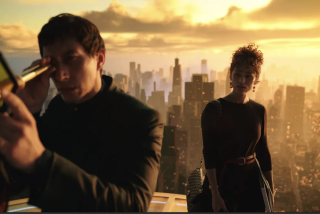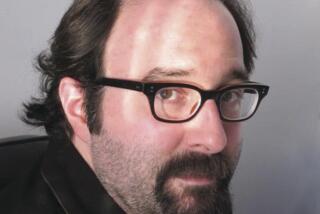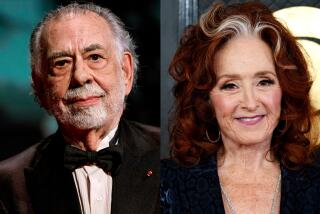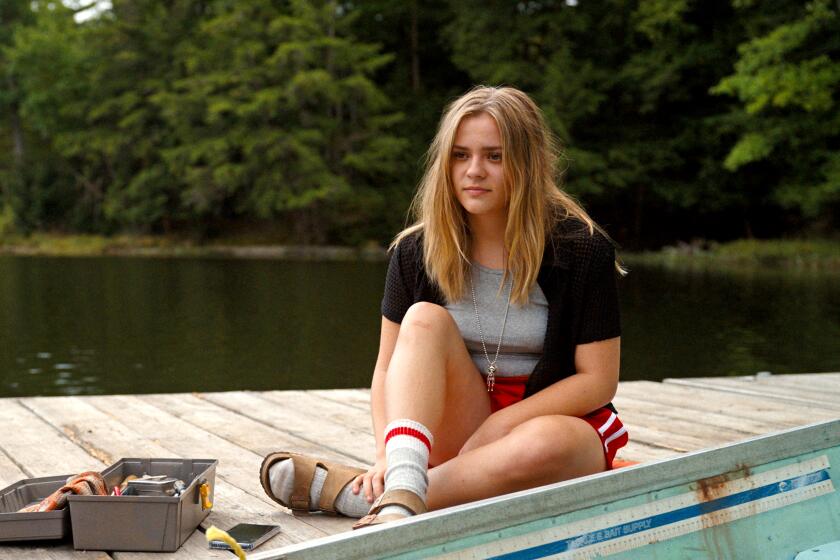Francis Ford Coppola’s vision of ‘Apocalypse’
What’s it like for Francis Ford Coppola to go back into the jungle?
“In some ways,” the 71-year-old filmmaker said with a warm laugh, “it feels like we never left.”
This week, a massive three-disc edition of “Apocalypse Now” arrives on Blu-ray with more than nine hours of bonus features and, more than simple cinematic celebration, Coppola’s intense participation in the project was a mission of legacy repair on several fronts.
For “Apocalypse Now: Full Disclosure Edition,” Coppola not only went back to dig out photos and documents from the production of the 1979 fever-dream film, he also sat down with star Martin Sheen and screenwriter John Milius and interviewed them about their signature contributions to the Vietnam War epic. Coppola’s clear goal — especially in case of Milius — was to share a spotlight that is often aimed only at the director.
“I hoped for people to learn more about John Milius and his true place in all of this,” Coppola said by phone last week. “The big moments of dialogue in ‘Apocalypse Now,’ those lines people still remember, all those were hatched in the mind of John Milius long before I got hold of the script. … I wanted to give him his day in court, give him his due.”
The new edition also delivers a widescreen version of the film on home video that Coppola says should quiet the howls of protest from “the aficionados and the purists” about the screen aspect ratio of past releases. The filmmaker directly supervised the transfers for the edition, and with pride he predicted a long life for this burnished version of his dark classic.
“This movie is the one that people want when they test out their new Blu-ray and home theaters, and this is the version they’re going to want; it’s technically perfect.”
Coppola, of course, didn’t have anything close to that kind of clarity during the making of the movie. The film was notorious even before its release for the assorted on-set calamities and excess of every sort that resulted in a mountain of material — “a million feet of film,” famously — and predictions of total creative derailment for a movie that starred Sheen, Marlon Brando, Laurence Fishburne and Robert Duvall.
Coppola had sunk much of his own personal wealth into the movie, and his spasms of anxiety are clear in “Hearts of Darkness: A Filmmaker’s Apocalypse,” the documentary assembled from behind-the-scenes footage shot by his wife, Eleanor Coppola, during some of the darkest days of the production.
“What you see is a director who believes he is going to lose everything,” Coppola said. “I was looking to my wife for encouragement, and her reaction was, ‘Let’s get the camera.’”
The documentary, represented in the new package with audio commentary by the Coppolas, was originally intended for a one-time airing on Showtime but ended up reaching theaters in 1991. It’s taken on a life of its own, and Coppola concedes there are scenes in it that he still finds himself regretting or explaining, such as the point where he responds to rumors that Sheen’s heart attack during filming was a fatal one.
“In the movie you see me say, ‘Martin Sheen isn’t dead unless I say he’s dead,’ and that sounds pretty bad, especially if you don’t know the context of the moment,” the filmmaker said. “And maybe it still doesn’t sound so good....”
Coppola said he set out to make a movie like “The Longest Day” or “The Guns of Navarone,” but in the end he delivered “a strange, surreal movie that was like our involvement as a country in the Vietnam War — there was over-wattage, too much of being in a situation, a sort of madness with equipment and technology and confusion in an age of psychedelia.”
At the time, the director was uncertain what he had achieved, but the strange central quest of the movie — a mission by Sheen’s commando character to assassinate the off-the-grid colonel played by Brando — became a pivot point in American cinema.
“After ‘Apocalypse,’ you couldn’t make a movie like ‘Longest Day’ anymore, it would have felt hopelessly dated,” the director said. “I didn’t know that when I was in the middle of it. I had no idea. I couldn’t see then what we all see now.”
More to Read
Only good movies
Get the Indie Focus newsletter, Mark Olsen's weekly guide to the world of cinema.
You may occasionally receive promotional content from the Los Angeles Times.










